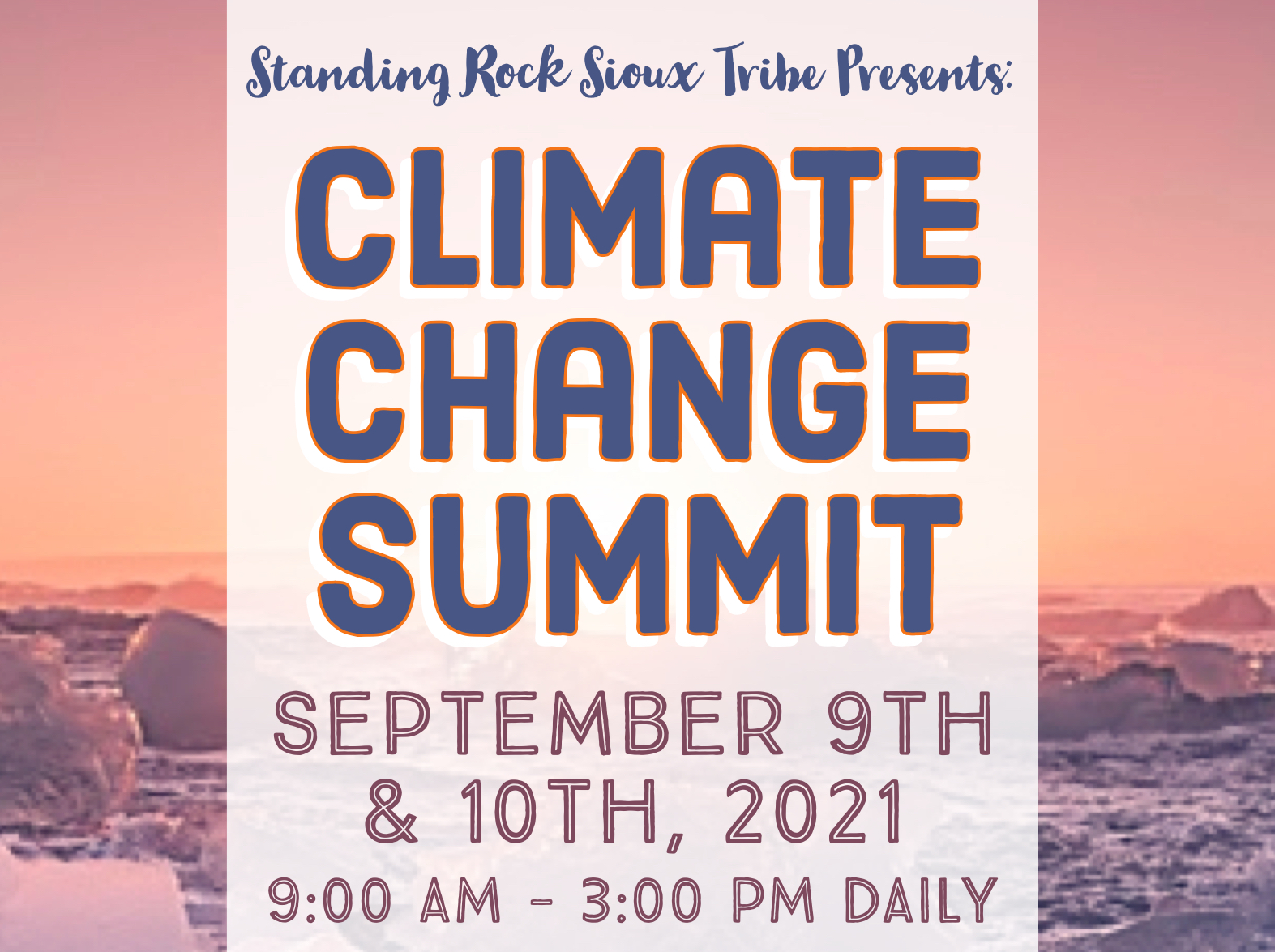In a first of its kind summit, government leaders from the Standing Rock Sioux Tribe led a Climate Change Summit on September 9th and 10th, 2021 in Bismarck, North Dakota. Scientists from multiple institutions, including the North Central Climate Adaptation Science Center (NC CASC) were invited to speak on issues related to climate change. NC CASC’s consultant to the Great Plains Tribal Water Alliance, James Rattling Leaf, Sr., was instrumental in the organization and hosting of this successful 2-day summit. As the planet heats up and we start to reach tipping points of irreversible changes, it’s time to have conversations and to find solutions. There is power in partnership and this was on full display at the Climate Change Summit as tribal leaders and western scientists met to share knowledge and innovate ways to work together on future initiatives.
Creating space for developing a shared literacy on the impacts of climate change is requisite for building partnerships to address the climate crisis. NC CASC scientists shared information on topics relevant to the Standing Rock Sioux Tribe, such as wildfire hazards and impacts, water availability and scarcity due to drought, grassland management, scenario planning for grazing and vegetation, and climate adaptation for tribal nations. Thousands of attendees across tribal reservations, the state of North Dakota, and the country were able to participate via the online Zoom platform to listen to these talks and discussions. Planning and policy, as well as sharing of resources to support resilience, are key factors in adaptation. This summit serves as an excellent template for future such events in which tribal leaders lead the charge.
The Standing Rock Sioux Tribe Climate Crisis Resolution, written by tribal leadership, has helped frame specific ideas on meeting the climate crisis head-on. It calls upon leadership and tribal governments to acknowledge and support the Standing Rock Sioux Tribe to call upon the US government to declare a state of emergency climate crisis and support the Paris Climate Agreement. It humbly encourages all indigenous nations to also support and sign the agreement and to take all necessary and culturally appropriate actions to save Grandmother Earth, unci makah.
When looking for common solutions to challenging problems, mutual respect is of utmost importance, as is reciprocity and relevancy. Rising to the climate change challenge will take all of us, working together, towards a healthy and sustainable future. It will take work at the local, regional and national levels. There is power in partnership. The Climate Change Summit was the first of its kind, but let’s ensure that it’s not the last.


